The Teachers of the Law School Truly Give Life to the “Second Classroom”
Date:2021-04-14
They focus on projecting the thinking accumulated in their teaching years into the design of the second classroom, making it diverse and distinctive. From the framework to the details, they continue to improve in the teaching process. Reading sessions are usually arranged on weekends or evenings after school.
The Yanyuan was dimly lit at night, and the second classroom in the Chen Ming Building of the Law School was the brightest.
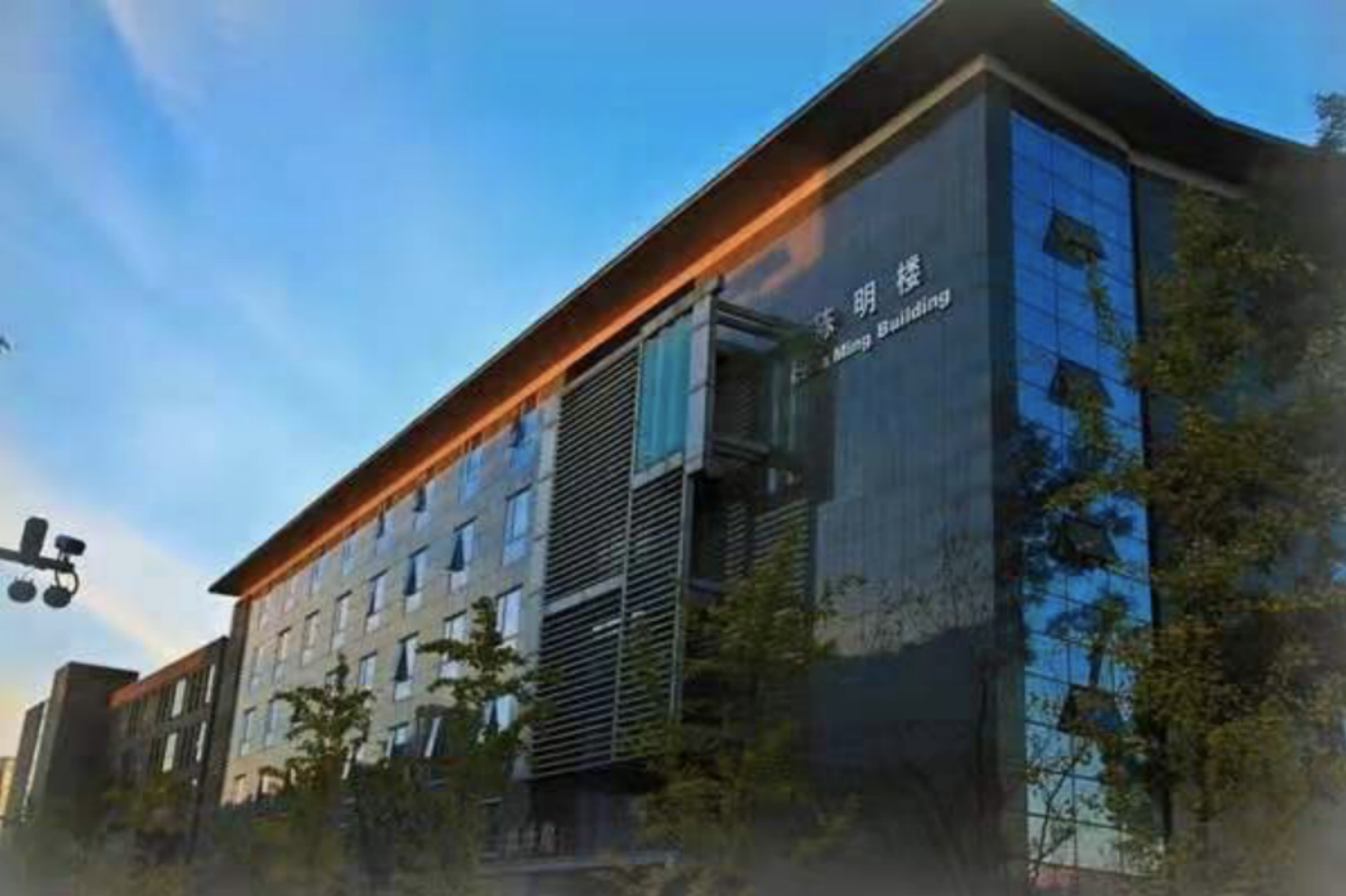
(Chen Ming Building of Law School in the Night)
For many years, there has been a phenomenon of "emphasizing scientific research and neglecting teaching" in Chinese universities. Scientific research has become the most important or even the only criterion for evaluating teachers in some occasions. Of course, there are historical reasons why the overall level of scientific research in developing countries is still catching up, and it is difficult to calmly realize the synchronization with teaching and a virtuous circle. At the same time, many domestic universities, including individual teachers, are concerned about the concept of "talent training is the core mission of universities". The sense of identity and acceptance of the Chinese is still relatively vague and hesitant, which leads to an imbalance in orientation.
In 2020, the Central Committee of the Communist Party of China and the State Council issued the "Overall Plan for Deepening Education Evaluation Reform in the New Era". The plan has made new arrangements for "improving the system and mechanism of establishing morality, reversing the unscientific education evaluation orientation, and resolutely overcoming the stubborn diseases of only scores, only advancement, only diplomas, only papers, and only hats". How to reform teaching evaluation and "promote the practice of the mission of teaching and educating people" are new tasks and topics for college educators across the country.
Peking University is the origin of China's legal education and the pioneer and pathfinder of China's legal education reform. The college always adheres to the policy of placing equal emphasis on scientific research and teaching, and regards teaching and scientific research as the basic responsibilities of university teachers.
Since 2011, Peking University Law School has initiated a new round of teaching reform centered on curriculum increments. New courses such as case study class, practical class, writing class and English class are added. After nearly ten years of hard work, the number of new courses has continued to grow, and first-class national-level undergraduate courses such as "Civil Law Case Study" and "Criminal Law Case Study" have emerged, and a diversified curriculum system has basically taken shape.
In terms of incremental reforms, the Peking University-Hong Kong University double undergraduate law program was added; the national high-end teaching forum for teaching administrators and the national teacher training class for frontline teachers were held; the "overseas teaching salon" with young teachers as the main body and famous teachers were held. The main "teaching life salon" and the "online teaching salon" participated by all teachers. In terms of stock reform, within the framework of the existing curriculum system, 80 “Stepping-Up Lecture series at PKULS” will be held to improve the quality of the curriculum and the sense of teaching honor; integrate various teaching information and regularly release “teaching affairs briefings” to all teachers to promote enrollment open and transparent teaching links such as training and graduation; promote various reading clubs, set up "second classroom" teaching projects, encourage and support teachers' extracurricular teaching, and create an atmosphere where teachers and students read together and study together.
Peking University insists on taking talent training as the center, insisting on both teaching and scientific research. PKULS is willing to work with colleagues across the country to respond to the call of the central government, continue to explore new paths for education reform, and work hard together to promote the progress of China's legal education.

The "first classroom" in the teaching curriculum plan is the main path for law students to receive legal knowledge and develop professional abilities, as well as the main export of the college's teaching resources. However, in the new era of education, universities are no longer just places to impart established knowledge, but should take the responsibility of cultivating students' independent research spirit. The second classroom provides the possibility for French students to obtain "customized" in-depth study.
The "Second Classroom" teaching reform project of PKULS was born out of various book clubs organized by teachers and students spontaneously. "Second Classroom" refers to the systematic and regular teaching and academic activities of teachers in addition to the formal and standard hours of the "First Classroom", voluntarily carried out, and in the form of self-selection. Students join voluntarily in accordance with their academic interests. The content focuses on reading and theoretical research, and focuses on the cultivation of students' comprehensive academic ability. The college provides venues for activities, purchases of books, materials, and lunch during the reading meeting.
The "Second Classroom" teaching program is held every half a school year, and is held every 1-2 weeks on average. It is led by one or more teachers, and the class size ranges from a few to a dozen students. Since the fall semester of 2018, the teachers and students of the School of Law have spent five semesters in the second classroom, 33 teachers have participated in the establishment of the project, and 75 teaching reform projects have been successfully completed.
01 Outline the panorama of "Second Classroom"
The development of the second classroom benefited from the national leading teaching team of PKULS, and the multidisciplinary legal research platform provided it with teaching support; jurisprudence, legal history, constitution and administrative law, criminal law, civil and commercial law , Litigation Law, Economic Law, International Law, and Intellectual Property Law have all set up second classes.
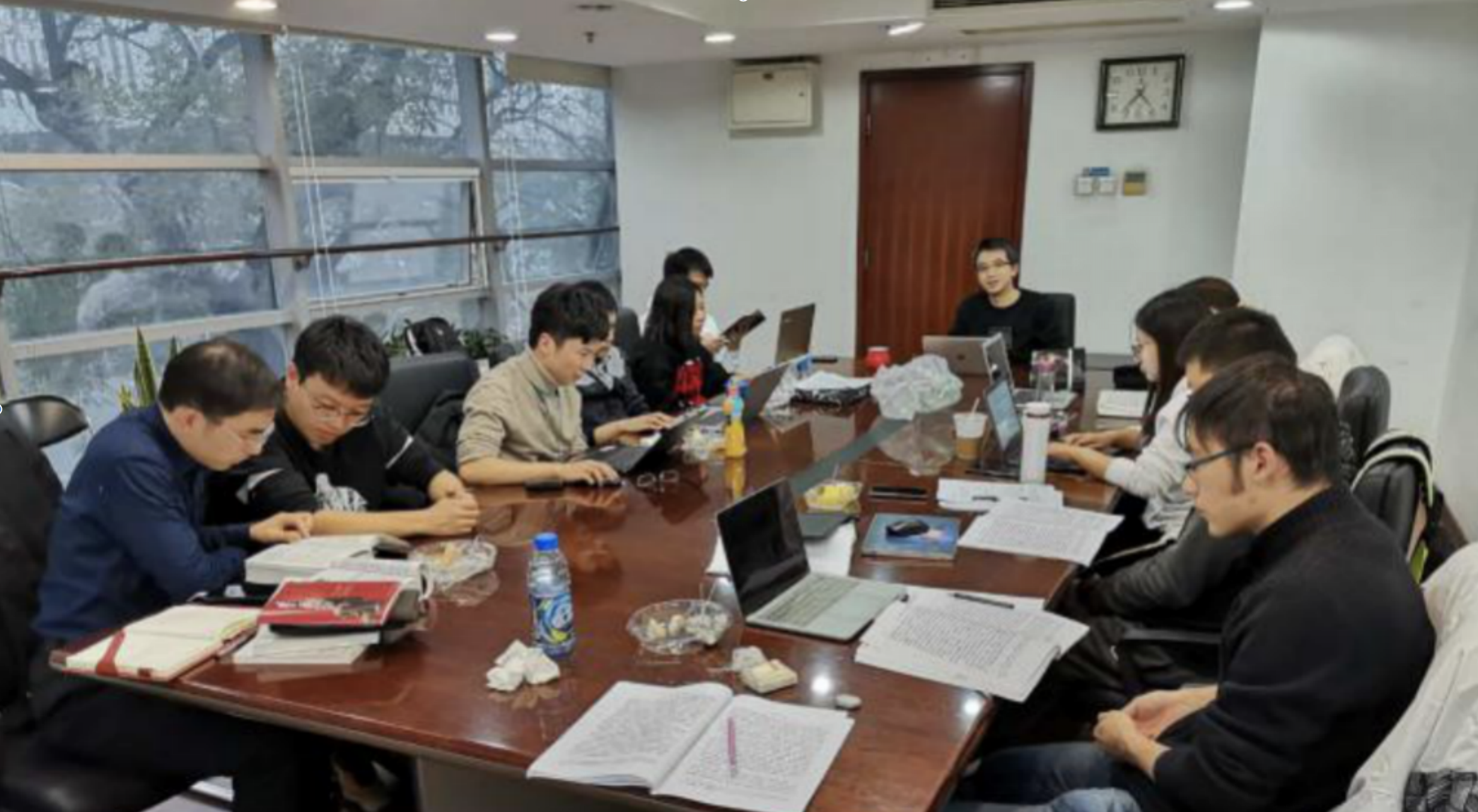
"Second Classroom" pays more attention to the innovative training of students in terms of methodology, analytical ability and research ability, and builds critical awareness and flexible use of knowledge on this basis. In the selection of materials, the “Second Classroom” focuses on cutting-edge theoretical issues, the latest research results, and classic social science literature, and promotes activities in the form of a wealth of classic readings, academic cutting-edge seminars, interviews with famous outsiders, and academic achievements reviews.
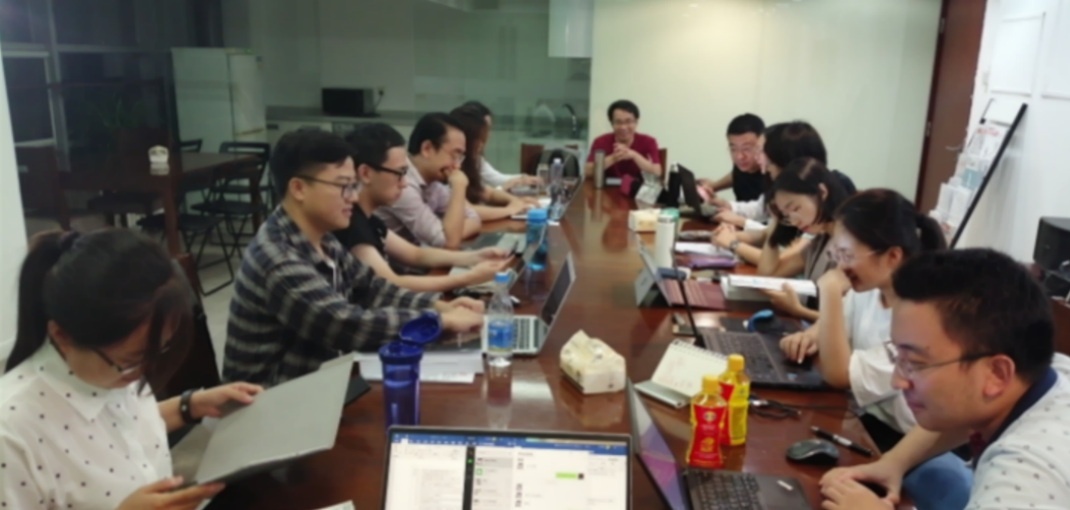
The subjectivity of students is the soul and meaning of the second classroom. Students can independently choose courses across different directions, and come and go freely, without being restricted by attendance. The student exerts his initiative even more in the dialogue with the teacher on an equal footing. When participating in the second classroom, most students actively made more detailed speech preparations, which extended the learning chain of the students’ classroom; some on-site reading classroom forms put forward higher requirements for students’ immediate response ability and basic knowledge reserve , urging students to accumulate extracurricular knowledge.
The second classroom produced the brainstorming effect in the "flipped classroom", and the original "spark of thought" collided during the interaction is not easy to pass away. In the past classrooms, the translations of foreign classics formed by teachers and students are planned to be submitted for publication; legislative seminars have formed professional opinions on amendments; academic results that have been further improved after thesis review have been published; in the discussion of cutting-edge topics, many Students have found their academic interest points and locked the research topics of their graduation thesis in advance...
Why set up a second classroom and devote so many educational resources to nurturing students?
For students, the second classroom provides them with more personalized high-level educational resources in addition to the traditional talent training methods. For teachers, the second classroom enables teachers to return to the professional standard of teaching and educating more heartily. The second classroom promotes the transformation of the disciplinary advantages of the various disciplines of PKULS into the advantages of talent cultivation, and is of great significance to the discovery of the junior talents of the discipline, the construction of students' academic background, and the cultivation of students' innovative ability.
02 Nothing will ever compare the Second Classroom when you participate in it
Book Club (book group)
Reading clubs (reading groups) are a form in which most teachers at PKULS choose to study together with their classmates. The reading club aims at deep reading and thorough reading, focusing on macroscopic and theoretical book reading, in order to develop more full exchanges in the precious, free and full reading time.
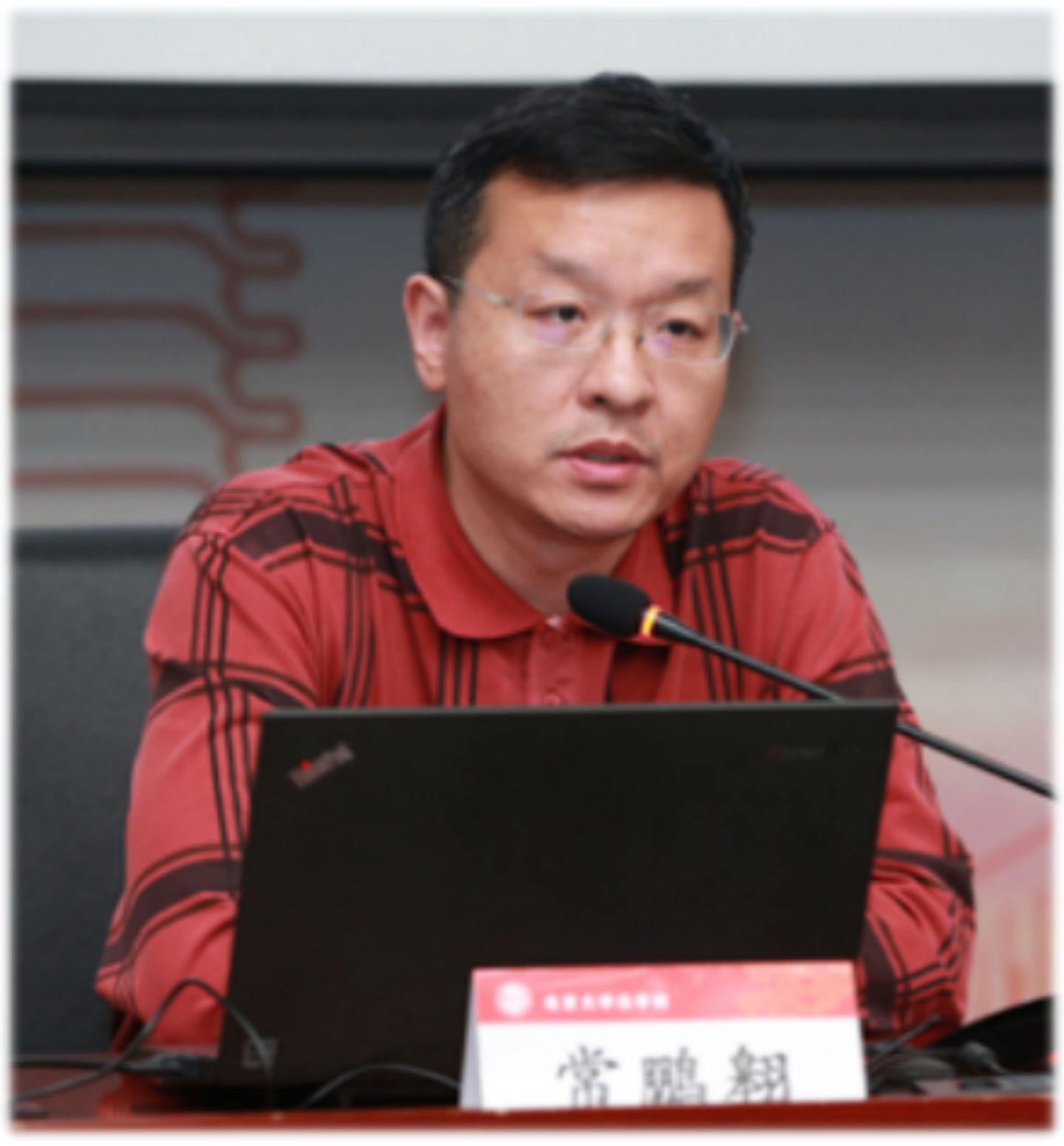
Prof. Chang Pengao set up the "Civil Law Philosophy and Basic Theory" class, focusing on intensive reading of classic works related to civil law philosophy and basic theories. It aims to help students understand and use the basic theories of civil law, temper rational thinking, and inspire research paths.
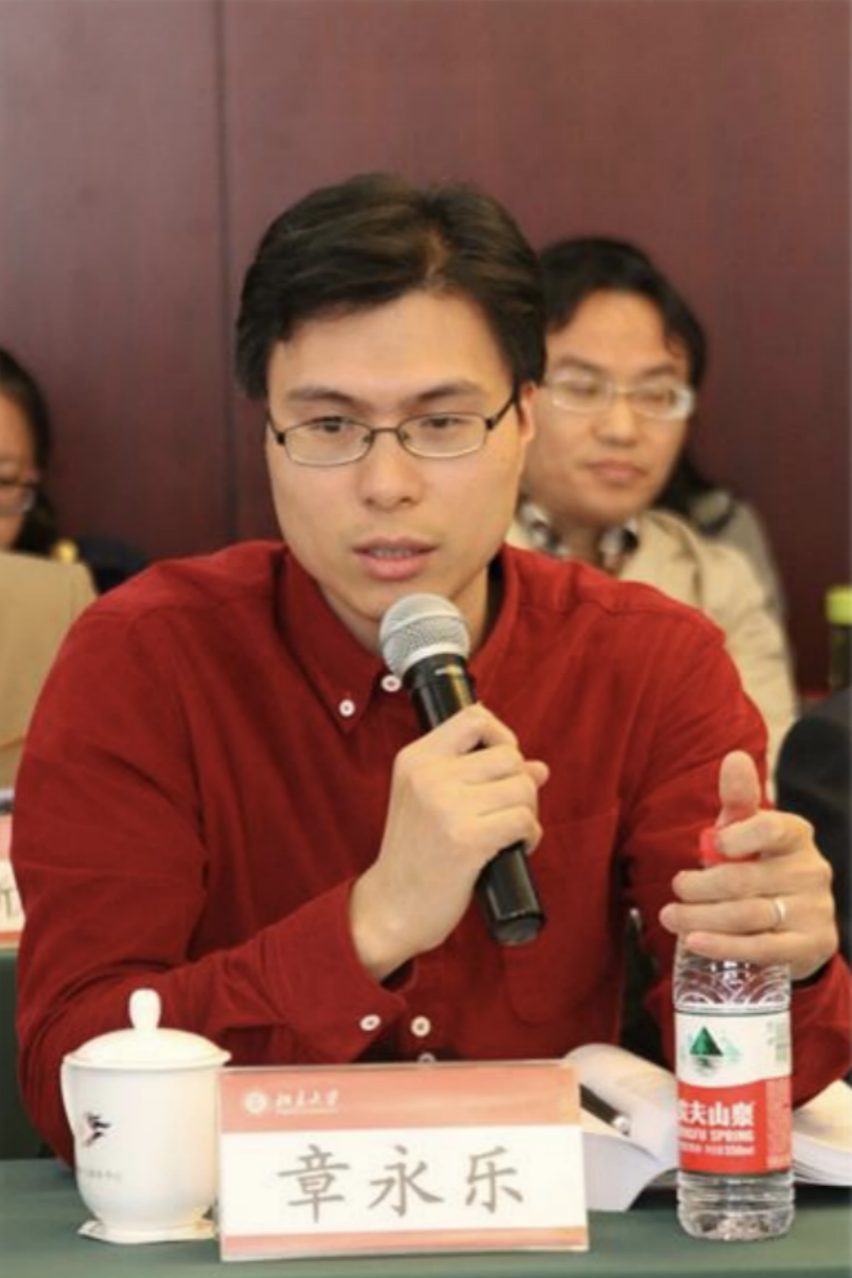
A.P. Zhang Yongle instructed the "Bandu Reading Group" to start in the fall semester of 2018, focusing on the connection with the "first classroom" in the selection of reading literature, helping students to strengthen the learning effect of traditional courses.
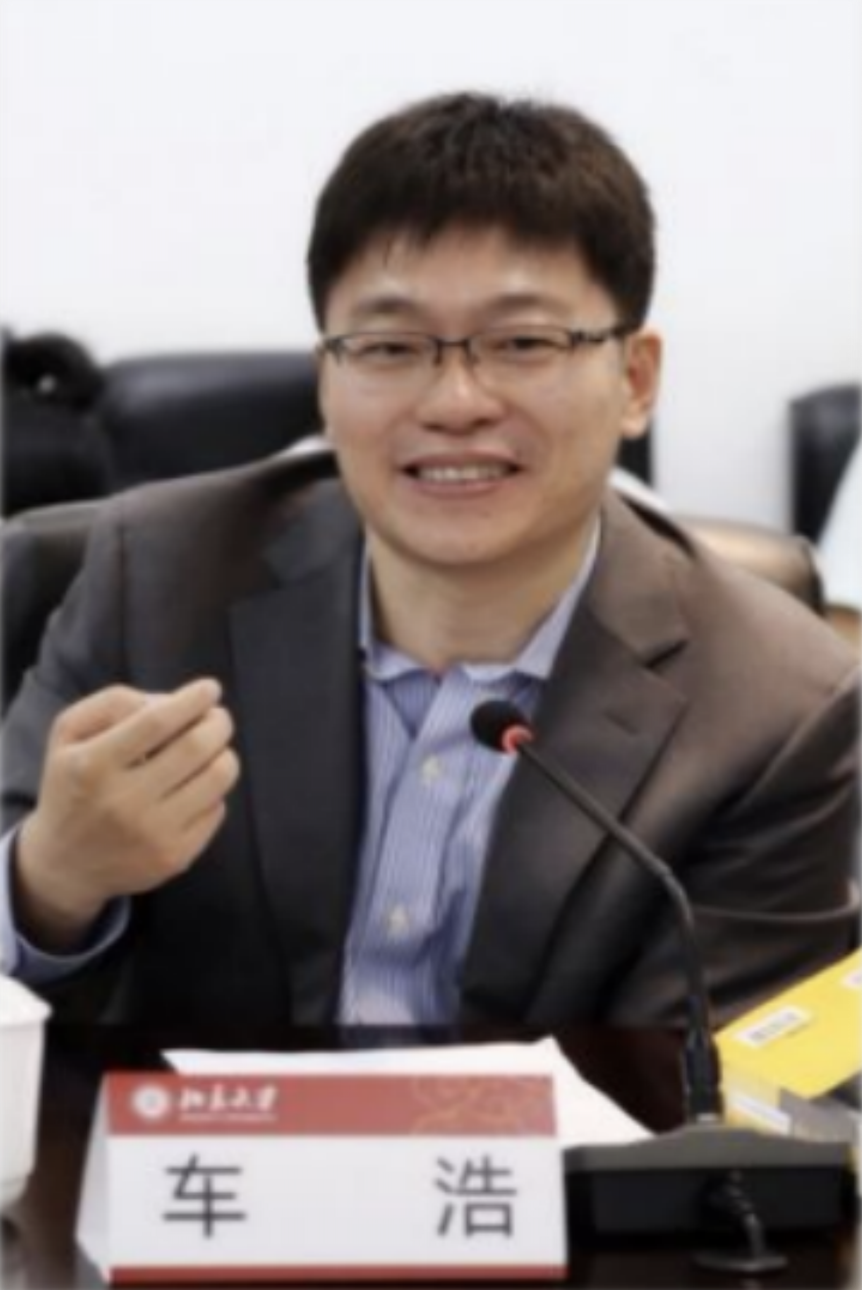
Prof. Che Hao started to set up the "Criminal Law Reading Group" in the fall semester of 2018. During the reading and communication time with students, he urged students to read more, read well, and benefit from reading.
The selection of reading groups is relatively wide. Some semesters focus on the general topic of criminal law. In order to achieve the interactive effect of comparison and reference and experience the similarities and differences, the reading of representative works of the general criminal law of Germany, Japan and other representative countries is promoted by the topic. Some semesters are to strengthen the theoretical foundation of students, selecting some books on jurisprudence and legal methodology as intensive reading objects to guide students to establish analytical and critical thinking.
Case seminar
When it comes to the application value of the legal knowledge system, to a certain extent, it is to provide a set of methods for resolving social contradictions and conflicts to obtain social recognition. The ability of professionally-trained legal talents to apply what they have learned when they graduate and enter the society depends on their innovative ability to systematically analyze practical problems with theoretical tools. To shape this ability requires practice-oriented education in addition to theoretical teaching. Case teaching is an important window to guide students from "books on paper" to "books in life" in the second classroom.
‘
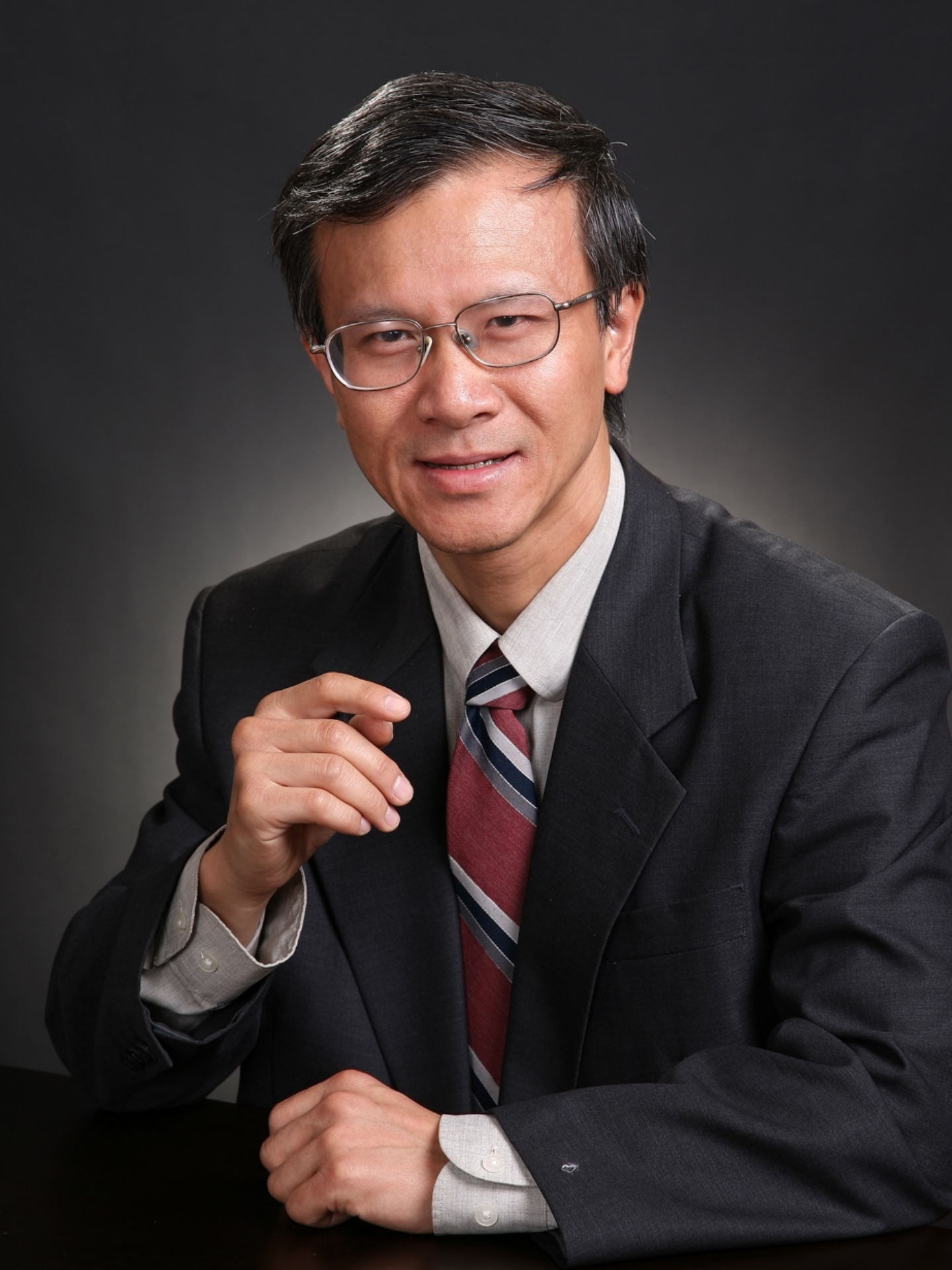
Prof. Zhang Qianfan opened two "Second Classes" for undergraduates and graduate students in the fall semester of 2020. The "Constitutional Case Study" focuses on case studies in the direction of constitutional science, while the "Constitutional Classics Reading" focuses on the reading of classic works of constitutional science. Together with the "first classroom", case seminar forms a relatively complete constitutional study ecology.
The "Civil and Commercial Law Salon" has been held every fall semester since 2018, and a tutor group is formed by Prof. Ge Yunsong, Prof. Xu Defeng, A.P. Zhang Shuanggen, and A.P. He Jian. It cooperates with the course "Civil Law Case Study" in the teaching plan, combined with the drafting process of the "Civil Code", in-depth exploration of controversial civil and commercial law theoretical issues, and provides students with analysis methods to master civil law claims and deepen civil law.
"Civil and Commercial Law Case Salon" and "Civil Law Case Study" courses have formed a benign and mutually supportive relationship. The technical threshold of the claim analysis method in the "Civil Law Case Study", the complexity of the case, and the limited class time make it necessary to extend learning after class and review the past and learn the new. The "Civil and Commercial Law Case Salon" provides this platform to relieve the learning pressure brought by the teaching plan. On the one hand, the salon provides students with more precise and professional methodological guidance; on the other hand, the salon discussion allows the tutor team to better grasp the students’ thinking inertia and common problems, and promote the improvement of classroom teaching.
Paper Commentary
From an application perspective, academic ability is often externalized as the level of essay writing. Law students go from undergraduate, master and then to doctoral degree. They have undergone a change of identity from learner to researcher and writer. In essence, they have advanced ability from knowledge input to thought output. The training of writing ability is like climbing a mountain. It takes a step-by-step experience and polishing to reach the top. The second classroom provides such an acquisition path.
The original intention of the "Law and New Finance Forum Council" was to guide students to follow up the practice in the field of financial law and exercise their academic research capabilities such as analyzing problems, expressing academic opinions, and writing papers.
The original intention of the "Law and New Finance Forum Council" was to guide students to follow up the practice in the field of financial law and exercise their academic research capabilities such as analyzing problems, expressing academic opinions, and writing papers.
Participants wrote legal analysis papers around recent financial legal practice cases.
The organizing committee of the jury assigns the submitted articles to at least three other students participating in the meeting to comment, and regularly organizes an on-site jury every week. Generally, 30-40 students and teachers such as Peng Bing and Hong Yanrong participate in the submission of articles. Review and discussion; the finalized article after multiple rounds of review and discussion will be published and published in the forum's regular journal "Law and New Finance" and the original public account "Peking University Financial Law Research Center".
Ability Practice Camp
The comprehensive qualities required by legal professionals are displayed at the two levels of professional skills and general education. In addition to open minds and creative thinking, it is still necessary to make judgments on complex social phenomena based on unique value measurement and intellectual rationality. Universities have created a field of common learning, and students still have to complete the process of socialization. And the cultivation of these abilities is more of a silent immersion of moisturizing things.
Prof. He Qisheng has opened the "High-end (Legal) Diplomatic Negotiation Talent Training Camp" in 2018, with the aim of cultivating professional, international and elite diplomatic negotiation talents, and providing students with comprehensive and professional diplomatic negotiation theoretical knowledge.
A.P. Guo Yu started to guide the "Oral History of Maritime Law" in the fall semester of 2018. Through interviews with the veterans of maritime law, record important events and figures in the history of the development of maritime law in China, and preserve historical data on maritime law.
03 Dialogue with "Second Classroom"
For the second classroom, teachers have formed a lot of thinking.
(Assistant Dean Yan Tian)
The second classroom has a long history in our college. When the older generation of scholars was like Teacher Gong Xiangrui, Teacher Luo Haocai was still a young teacher, and Teacher Jiang Mingan was still a student. I heard from the teachers that I often went to Teacher Gong’s office on weekends to listen to the teacher’s guidance to the students, and everyone to discuss together-this was an important way of teaching in the 1970s and 1980s. After the 1990s, second classrooms with book clubs as the main form appeared universally.
By the time I was studying, it was already in the 21st century. Many teachers’ self-organized book clubs and other training methods have been carried out for many years and still exist today, and are supported by our second classroom project. The teaching form of the second classroom has formed a tradition in our college.
(Prof. Peng Bing)
When I was studying for a Ph.D. degree at Peking University, Teacher Wu Zhipan started to take the lead in doing the "Financial Law Court" magazine in 1998, encouraging us to write every week, and then organizing master students and doctoral students to discuss together and criticize each other.
When I became a teacher many years later, I found that this kind of council is a very good way to train students, so probably from 2014, we started to do research on Internet finance. I often tell students that the biggest benefit of getting an education at Peking University is not what the teacher teaches—the teacher is not really important, but your classmates are important. The Peking University entrance examination selects a group of people who can grow up very well in the process of learning and motivating each other.
(Prof. Lou Jianbo)
From the perspective of practical experience, the second classroom is an indispensable part of postgraduate training. Students only train through lectures, course essays, graduation thesis, and internships. They will lack the ability to grasp a problem as a whole. New topics or topics that have not been touched before, will not know how to proceed. After the future work, no matter in which field, the main method used is the method learned in school, and the specific knowledge needs to be continuously updated and supplemented. Therefore, in addition to the importance of cultivating students' abilities and broadening their knowledge, the second classroom is more important for students to learn how to deal with problems.
(A.P. Yang Ming)
The main difference between the second classroom and the first classroom is that it aims to make up for the deficiencies in reading and ensure the sufficiency of students' reading, while the first class mostly focuses on constructing a knowledge system and consolidating the theoretical foundation. Relatively speaking, the current reading volume of students is not enough to meet the needs of research on the whole. The second classroom is a concept that encourages students to understand their own shortcomings in academic research, and through continuous reading, they can enhance their research horizons, problem awareness and research methods.
(A.P. Liu Zhewei)
The greatest significance of reading clubs for students is that they can calm down and read some theoretical books. At present, the training cycle of master's degree students is relatively short. If there are no extracurricular academic activities, the energy of second-year master's degree students is all about finding jobs. The reading club can force them to read more during their time at Peking University. Because, in our opinion, law students have many classics that they should read at the undergraduate level, but they don't read them. Most of the students read textbooks. In terms of reading effect, everyone may have a different degree if they do not understand the book.
But in the time of the book club, everyone can enjoy the reading process happily, feel the joy of reading, broaden their horizons, and show different knowledge structures. This is also meaningful for the students of Peking University.
How to start a book club?
(Prof. Chang Pengao)
The reading method is very important for the reading club. When reading, we are not simply reading a certain book, but systematically reading the overall thoughts of a certain author. Not only that, in order to grasp its context more systematically, we also specially invited scholars and teachers with strong academic skills to talk about Kant and Aristotle for the students to determine the entire ideological context.
(Prof. Xu Defeng)
Regarding the selection of reading themes, my reading club has moderately paid attention to some seemingly “obtrusive” or theoretically controversial issues, but in general, the focus of the discussion is on basic issues and basic systems.
(A.P. Jiang Su)
The reading club or the starting point of the second classroom should return to students and pay attention to the new force of students' academic interest. The second class of "Law and Artificial Intelligence Reading Club" was not initiated by me personally. PKULS has a student organization called "Law Wisdom in the Future". It is a student organization whose main information is law and technology. The organizer of the organization, Li Menghuan, invited me to participate in their reading activities around 2018. He is extremely interested in cutting-edge issues such as legal big data and artificial intelligence. Under such a special drive, multiple forms of activities are often derived from students' academic interests and development needs. The power of the students’ enthusiasm is very enlightening to the teaching of teachers.
(A.P. Xiao Jiangping)
In the process of training graduate students, the development of the second classroom activities provides them with some valuable and researchable questions, guides their analysis and demonstration, and reveals the way of problem research. Perhaps for the teacher, the research conclusions on related issues are relatively clear, but for graduate students, it is very important to obtain standardized and immersive academic training through specific research experience. For the cultivation of doctoral students, further attention should be paid to promoting the innovation of subject knowledge through research.
(Prof. Zhang Ping)
The second classroom, driven by on-demand training, was originally an academic platform set up by teachers for students. After giving full play to the initiative of students, this platform was run by students on their own. Instead, students are now pushing teachers. The premise of on-demand training is that students have their own thinking, have formed an understanding of a problem, and hope to do further research in related fields.
(A.P. Zhang Yongle)
In addition to the regular content, my book will allow participants to pick a poem or a group of poems they like, read it aloud, and then the picker will interpret it to everyone. Generally speaking, the poems chosen by everyone are related to major civilization traditions and major historical events in the world, so that we can use the experience recorded in the poems to deeply review and think about these civilization traditions or major historical events. The word Nomos in ancient Greek has both the meaning of "Dharma" and the meaning of "song". It may point to an ancient historical experience: the earliest Dharma is often sung. The person who sings is someone who loves and awes.
(A.P. Zhang Zhiyong)
In order to ensure the effect of the book club, I will give students a clear reading task: the lecturer needs to read intensively and be prepared for the explanation; other students have completed the pre-session reading and are ready for comment. Regarding the content of reading, I don’t think I need to introduce it from beginning to end, but to refine the core ideas and important arguments, and focus on explaining what inspires me the most, especially the content that I didn’t understand.
In fact, I have read the book list of the book club myself. I hope that students will have their own opinions during the exchange process, but I will not say it explicitly, but observe the students’ reading initiative, especially whether they will be here. In the process, the reading of some supplementary materials was consciously expanded. In addition, reading books sometimes involve concepts and background knowledge of other subjects, and students need to do more homework if they are short of reserves.
(Prof. Zhang Qi)
In the book club, when we read some purely philosophical works, it is hard to say that it is directly helpful at the legal level. But I saw an article forwarded by many colleagues in the circle of friends called "Utility of Uselessness", which can explain some problems. Some basic theoretical studies of the natural sciences were regarded as useless by contemporary scholars. But it is precisely some so-called useless basic theory disciplines, for future generations of scientific and technological breakthroughs laid the foundation and development of the possibility.
(Prof. Li Honghai)
The book club should be interest-oriented and free to come and go. In fact, when the reading club is gradually advancing, there will actually be a process of natural elimination. The training effect of students who have gone through this process is worth looking forward to. Ability training is not accomplished overnight. From the teacher's perspective, it is still hoped that students can develop interest in subjects and related topics as soon as possible. There are only two or three years of training for the master's degree. This time is very short, and it is even difficult to get started. If students can develop interest in the undergraduate stage and start professional development as early as possible, better results will be achieved.
(A.P. Zhang Shuanggen)
Cultivation effect is not easy to generalize, it depends on the degree of student input. Those with a high degree of investment, those with a high interest in reading, and those with a strong initiative have better results, which can be fully reflected in the quality of the graduation thesis among past students. And the effect of this kind of training is also dynamic, and the key lies in the degree of personal investment. Sometimes when students are fully invested in a book meeting, the quality of asking questions immediately and the enthusiasm for participating in discussions will be very different. It can be said that this is just a matter of time, and there is no skill. I also want to tell the students in this way that reading is a time-consuming thing, and it is impossible to speculate.
(A.P. Xiao Jiangping)
Sometimes the benefits of education cannot be summarized simply. Sometimes the knowledge, methods, and skills taught may not be known to the students unless they are taught. After graduation, they may be engaged in research or practical work. Although many educational models are based on teachers’ subjective considerations, they are good for teachers and students. Ten years of trees, a hundred years of trees. It is difficult to say how much benefit the second classroom project can produce in the future, but it must be very useful.
04 Random talk: Second Classroom and legal education
The second classroom is like a floating iceberg. The teaching form presented is above the horizontal plane. What supports the iceberg is that the teachers below the horizontal plane have a larger volume and a more three-dimensional reflection on legal education. Perhaps in the current legal education, some thinking can be universally realized, it is not an easy task, it will take time. But the first step from ideal to reality may need to be in the second classroom.
The Significance of General Education in Law (Prof. Ge Yunsong)
The purpose of setting up general reading classes is to select some theoretically interested undergraduates and guide them to make full use of the teaching resources of Peking University, under the guidance of teachers, strengthen general education, and have a good foundation in philosophy, humanities and social sciences. Through ability, in-depth grasp of general theories of law and basic departmental law. These knowledge and abilities can be used as preparations for future academic work in law, and can also provide a solid foundation for other jobs.
The reason why I started in the lower grades of undergraduates is because the students in this period are the least prejudiced, and their interests are in the bud. In contrast, as a reality, senior undergraduate students and graduate students usually have a clearer (or narrower) position of themselves for various reasons, and they have a heavier learning expertise. Tasks, in this way, it is possible that the degree of attention to knowledge areas and issues outside of the positioning/professional will be greatly reduced. Therefore, it may be appropriate to start in the lower grades.
The significance of reading classics (Prof. Ling Bin)
The humanities and social sciences still need to cultivate students' reading and thinking skills through classic reading. As far as the training can be provided by the school, this is the best way at present, although it is not all.
The reason why these classic works are classic is that they have been screened by mankind for a long time and have withstood the test of time: they come from the works written by the most outstanding minds in human history during long-term thinking or when they are at the peak of inspiration and intelligence. After hundreds of years or even thousands of years of historical tests, the results of so many human knowledge finally settled down, it must be because they have an irreplaceable role.
Although law is often emphasized as having an independent system and an autonomous discipline, its way of thinking and even conceptual system have long been based on the deeper disciplines of philosophy, sociology, economics, and political science. . If you don’t read these classic works in depth, even students of Peking University, the reading level is likely to stay on the basis of Weibo, WeChat, Zhihu, and Douban, and there is no essential difference between them and the general knowledge public; even if they are professional The knowledge is very advanced, but the reading and thinking level is also normal. Over the years, I personally feel that there is no other fancy or shortcut, which is to read these classic works and receive the training of these outstanding minds.
Cross-cultural communication in legal education (A.P. Chen Yifeng)
At present, most of our legal education starts with the study of domestic law, but in the future, legal professionals will face an increasingly global working environment. No matter your profession is a lawyer, a legal adviser in a state-owned enterprise or a staff member of a government department, many problems encountered in your work contain foreign-related factors. In the context of globalization, China continues to go global and is also facing more transnational interests. It is impossible to close the law as before.
The core issue behind this is cross-cultural competence. Cross-cultural competence includes the interest and mentality to understand other people’s culture across one's own culture; in this cross-cultural atmosphere, one must have the ability to communicate, argue, and persuade others; use these to construct an understanding of some cross-cultural legal concepts . This may fall into the content of comparative law in form, but in essence it implies the understanding and integration of different logics and substantive meanings under different legal concepts. Finally, we can still learn the global legal system and framework in this process, so that we can participate in governance issues from a more detailed perspective in the future.
Internal and external cultivation in legal education (Prof. He Qisheng)
Confucius said, "I don't know how to be polite, there is no way to stand." People who are well-trained on the inside also have a "model" on the outside. The demeanor of masters like Prof. Luo Haocai and Prof. Fei Xiaotong impressed me deeply. That kind of elegant and elegant wind overflows at any time, and it is very close and natural to be with him. From these admirable and admired predecessors, it can be appreciated that the internal cultivation reaches a certain level, and the external image will naturally be a matter of course. For students, there is still a long way to practice. At the very least, they must start to pay attention to their personal image, manners, and comprehensive qualities. They will face social evaluation when they get married and start a career.
We should also understand that higher education is still a form of large-scale education. Only doctoral students can receive targeted and elite education in the “One Belt One” area. Schools cannot teach us everything. In school, mastering knowledge is still the most basic quality that graduate students need to master, and it is also the basis for striving for a high starting point. And knowledge can be further classified, for example, thinking and information are different. For law majors, the memory of the law is not the focus of learning; how to understand the meaning of the law and master the logic behind the law is a way of thinking that students should master, and this is also an important part of personal cultivation.
05 The Spirit of Peking University and the "Second Classroom"
The "Second Classroom" teaching project is one of the contents of the teaching reform of PKULS. In a functional sense, the "Second Classroom" project extends the focus of teaching innovation from the curriculum in the training program to the extracurricular, and in terms of educational relations, it has shifted the main body of teachers to a new type of educational community in which teachers and students interact. In terms of activity benefits, the second classroom makes up for the limitations of the "first classroom" in terms of teaching form, content, and time. The new model of "Second Classroom" is worthy of in-depth thinking.
The members of the teaching management team who promoted the second classroom teaching reform project all felt deeply about this.
Prof. Che Hao, the deputy dean in charge of teaching reform, pointed out that Peking University’s book club has a long tradition. A hundred years ago, Li Dazhao participated in the student’s Red House book club many times. Since the 1980s and 1990s, various book groups on the campus of Peking University have become a trend. Although in recent years, with the development of network information technology, students have increasingly expanded their knowledge and communication channels, but setting up a "private school" outside of the classroom to read and discuss face-to-face together has always been an irreplaceable charm among Beijing masters and students. "Because it embodies a unique teacher-student relationship, an in-depth intellectual exchange outside the formal classroom, and an educational ideal to teach students in accordance with their aptitude."
In the eyes of Teacher Yan Tian, assistant to the dean of teaching, the Second Classroom of PKULS will become a new symbol of legal education. The second classroom represents a model of teacher-student relationship that has not been noticed today. PKULS is a school that attaches great importance to legal research. After graduation, many students are engaged in research and teaching. To cultivate theoretical talents, to a large extent, teachers need to treat students with the attitude of cultivating future colleagues and colleagues. Just as the exchanges between colleagues include meetings in formal occasions and informal exchanges during meals every day, exchanges between teachers and students with theoretical interests also need this second channel. From this perspective, the second classroom represents a different imagination of the teacher-student relationship, but also a way of advocating a new type of academic life. At present, students basically divide their lives into two parts, one is class and homework, and the other is personal life. In addition to school and personal life, there should be a third part, the intellectual life. Teacher Yan Tian said, "The biggest advantage of this is that after students graduate and put into practical work, even if it is a very specific and metaphysical content, there can be a spiritual sustenance from this shore to the other shore".
Prof. Pan Jianfeng, Dean of the School of Law, said that the second classroom expands students' academic horizons, develops good reading habits, and promotes academic interaction between teachers and students. It also reflects the love and dedication of PKULS teachers.
A.P. Liu Zhewei, assistant to the dean of teaching, was also quite touched by this. In this fast-paced era, teachers are often busy coping with various scientific research assessments and social activities, and pay little attention to teaching as their job. However, the teachers of PKULS are not only devoted to classroom teaching, but also willing to bring their own dry food to lead students to carry out reading clubs, case reading sessions and other activities after class regardless of time and compensation. These activities not only broaden the knowledge boundaries of students, but more importantly, form a good style of study for persisting in reading and research, and also provide teachers and students with a communication space for calm communication. In recent years, the college's support and affirmation of this type of "second classroom" has further aroused the enthusiasm of teachers to organize and participate.
Translated by: Wang Xianning
Edited by: Xu Mengyao



